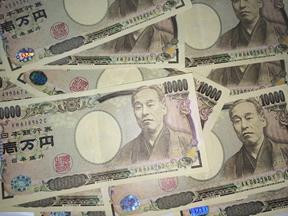Global currency markets were caught in the throes of volatility on Tuesday. The U.S. dollar reached a 10-week peak against its counterparts and a six-month high against the yen, before Japanese officials stepped in to stabilize their local currency amid investors' global policy apprehensions.
In response to the yen's weakening to a six-month low against the dollar, Japan's leading currency diplomat asserted that the nation would "appropriately" respond as necessary while closely monitoring market activities. This statement followed a meeting of financial authorities, triggering the yen's strengthening and maintaining its gain. The dollar eventually dipped 0.2% to 140.16 yen, after previously soaring as high as 140.93 yen, its highest since November 2022.
Derek Halpenny, MUFG's head of research, global markets EMEA, speculated that this meeting would have minimal impact but acknowledged the yen's prominence in light of potential elections, approaching termination of petrol subsidies, and Japan's status as a major energy importer.
Halpenny further conjectured, "If (Prime Minster) Kishida is looking at a snap election, he wants to be seen to be addressing one source of energy inflation which would be currency depreciation."
Simultaneously, President Joe Biden and Republican House Speaker Kevin McCarthy inked a pact on Sunday to provisionally suspend the U.S. debt ceiling and impose limits on some federal spending to evade a debt default. This event nudged the dollar index, gauging the U.S. currency against six major counterparts, to 104.53 in European trading, its zenith in 10 weeks, before it regressed to 104.02. The agreement is slated to undergo its inaugural test in Congress later on Tuesday.
Reflecting on this, Jane Foley, head of FX strategy at Rabobank, observed, "It seems to be win-win on almost any scenario for the dollar right now." She added, "Last week the dollar was gaining on safe-haven demand in case the U.S. defaults, this week you can say the dollar is gaining because the U.S. isn't going to default. It tells you there is demand for the U.S. dollar."
She highlighted the market's focus on potential interest rate hikes by the U.S. Federal Reserve in the coming months, which, along with the reconsideration of market positions, supports the dollar's strengthening.
In other currencies, the euro was up by 0.28% at $1.0733 after hitting a two-month low, while the pound rose 0.5% to $1.2426. On the other hand, China's onshore yuan softened after China's central bank set the fixing at the yuan's weakest level since December. Meanwhile, the Turkish lira hit a record low following President Tayyip Erdogan's electoral victory on Sunday.




